| | | | | | | Presented By Kroger | | | | Axios World | | By Dave Lawler · May 23, 2022 | | Greetings from Davos, where the World Economic Forum is holding an unprecedented springtime summit (due to several COVID delays). - My colleague Jonathan Swan had a big interview on the sidelines of the summit this evening with Volodymyr Zelensky, who is the star of the show here despite only appearing remotely. Both his address this morning and the interview this evening were jam-packed.
- Tonight's edition (1,562 words, 6 minutes) starts with that interview.
🚨 Breaking: The Biden administration has been quietly mediating between Saudi Arabia, Israel and Egypt on negotiations that, if successful, could be a first step on the road to the normalization of relations between Saudi Arabia and Israel, Axios' Barak Ravid scoops. Go deeper. | | | | | | 1 big thing: Zelensky says Putin's "atrocities" will make peace harder | 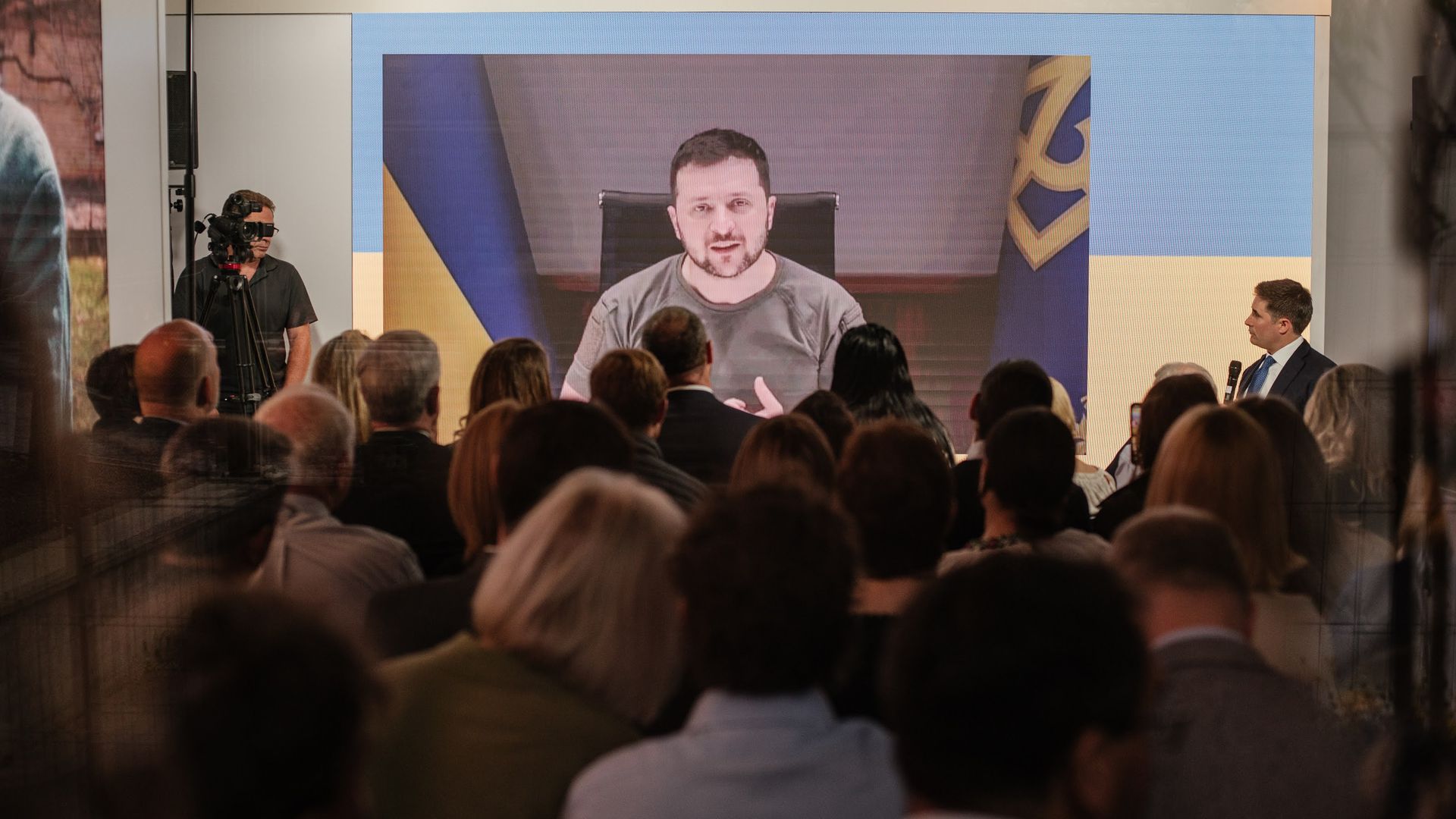 | | | Your correspondent is center in the second row, behind Liev Schreiber. Photo: Courtesy of Ukraine House Davos | | | | Ukrainian President Volodymyr Zelensky told Axios' Jonathan Swan today that Russian atrocities in Ukraine make it difficult for him to ever sit down with Russian President Vladimir Putin to strike a deal to end the war. Why it matters: Disagreements are bubbling up in Kyiv and among Ukraine's Western partners about what Ukraine's endgame should be. In the interview, Zelensky struck a middle ground between those arguing that Ukraine must fight until Russia is conclusively defeated and those pushing him to offer Putin an off-ramp. What he's saying: Zelensky said that after what Russia had done to Ukrainian cities like Bucha and Mariupol, "it's getting more and more difficult" to consider negotiations. - But he also said only diplomacy with Putin could end the war. "We cannot avoid this meeting with the president of the Russian Federation, but after these atrocities they committed, I cannot be too excited about such a meeting."
Between the lines: After the Feb. 24 invasion, Zelensky repeatedly called on Putin to meet with him, to no avail. - He even laid out a rough framework for a potential agreement in March: Ukraine would rule out NATO membership and Russia would return to the pre-invasion lines (still occupying Crimea and parts of the eastern Donbas region). At that point, further negotiations would take place.
- But when asked in the interview if he stood by those positions, Zelensky pivoted to the need to keep the pressure on Russia militarily. "We will fight to the point where we liberate everything we can liberate," he said.
- However, he did say that "a couch potato can be more hotheaded than ones on the front lines" when it comes to considering a peace deal.
Setting the scene: The interview took place at the "Ukraine House" on the sidelines of the World Economic Forum in Davos, Switzerland, with Zelensky appearing by livestream. - Zelensky addressed the forum earlier in the day, calling for "maximum sanctions" that would include a full trade embargo on Russia.
- But when discussing the endgame of the war, he has been more cautious than other top Ukrainian officials. Military intelligence chief Gen. Kyrylo Budanov recently told WSJ that Russian troops must be forced out of Ukraine — including occupied Crimea — "exclusively by force."
Asked if he really thought Ukraine could retake Crimea by force, Zelensky repeatedly dodged the question — to laughter from the audience — by saying how much he liked Gen. Budanov. - But he said his understanding was that in such a scenario, "hundreds of thousands" of Ukrainian troops would be killed.
More interview highlights: |     | | | | | | 2. Zelensky: "We are losing too many people" in the Donbas | 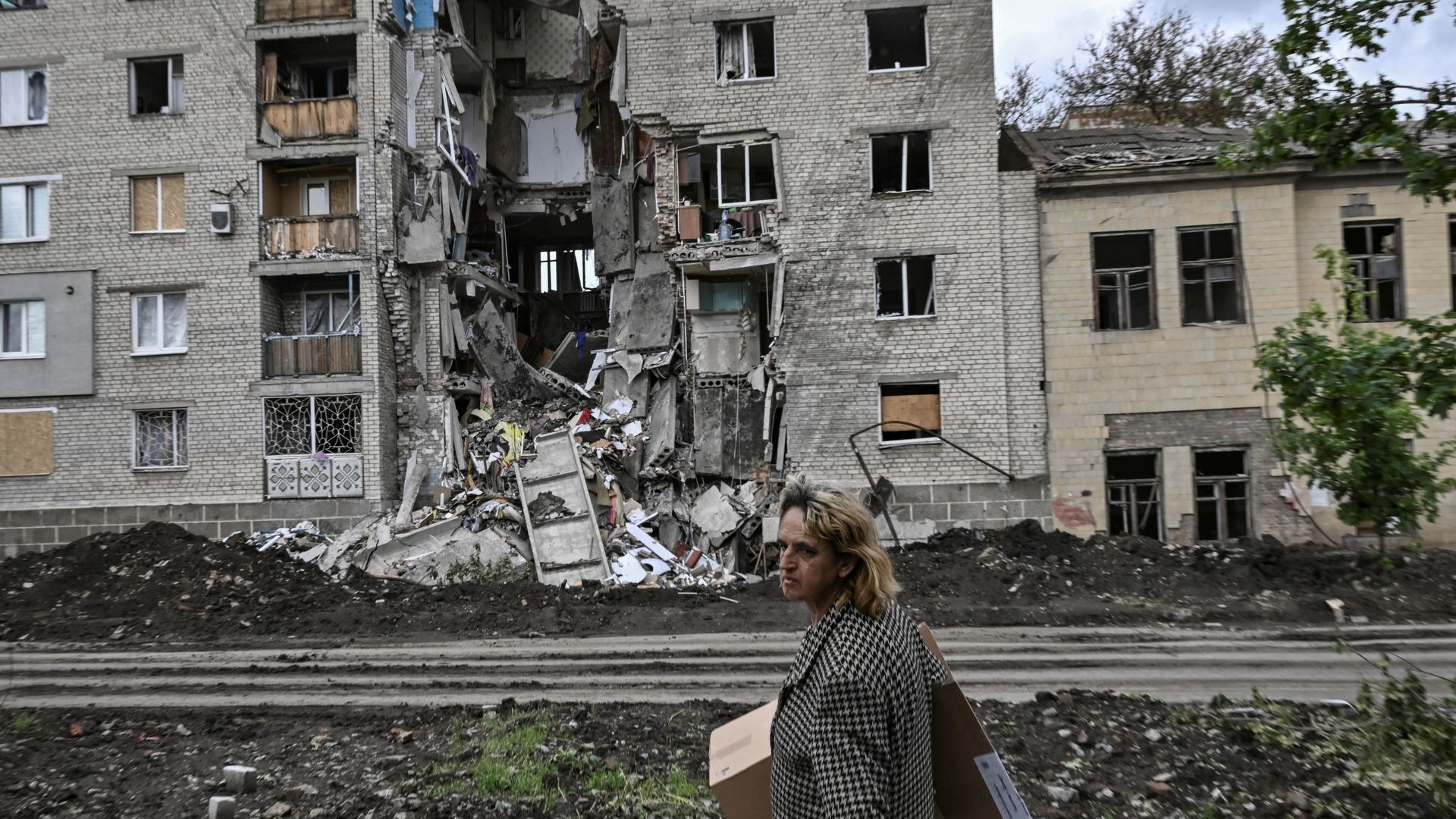 | | | A woman walks by a destroyed apartment building in Bakhmut in the Donbas region on May 22. Photo: Aris Messinis/AFP via Getty Images | | | | Zelensky told Swan that while Ukraine was successfully repelling Russia from Kharkiv and other parts of Ukraine, there have been heavy losses in the Donbas, which he called "the most difficult situation" of the war for Ukraine. - Zelensky claimed that Russia had 20 times more equipment than Ukraine in the Donbas. He said Ukraine needs more artillery and other weaponry so it can fight from a distance and reduce its casualties.
State of play: Russia has made progress in its efforts to seize the remaining Ukrainian-held territory in the Donbas, but military analysts believe the Russian offensive there may soon be exhausted. Shortly before the Zelensky interview, I met with Lawrence Freedman, a professor of war studies at King's College London who's been producing detailed analyses of the war in Ukraine. - "It's a vicious, vicious battle," Freedman said of the Donbas fight. "It's obviously quite hard to say this is a battle that now the Ukrainians will certainly win."
- But elsewhere in the country, including around Kharkiv and Kherson, Russia is already "taking a defensive posture" to avoid losing more ground to Ukrainian counterattacks, he says.
- "I think we're at a pivotal stage where you've now got a mixture of offense and defense on both sides, and gradually I think you'll see a shift to Russia being the defensive force," including in the Donbas, Freedman says.
What to watch: Despite Ukraine's heavy losses in the Donbas, Freedman believes the country has a strong enough force to conduct a counteroffensive to attempt to retake territory there. |     | | | | | | 3. Nerves at Davos over economic outlook | 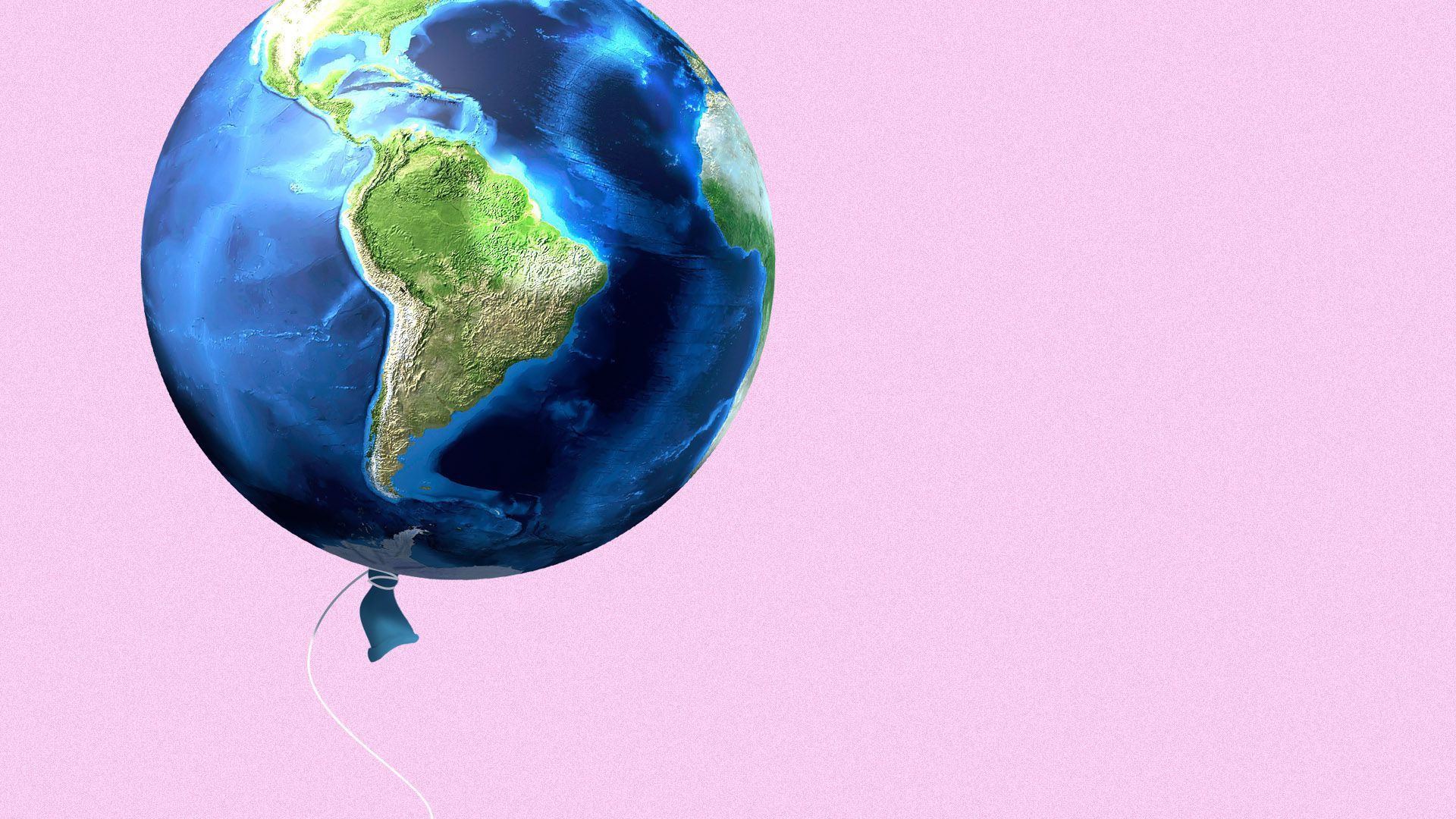 | | | Illustration: Sarah Grillo/Axios | | | | Hopes of a robust global economic recovery in 2022 have been replaced by expectations for high inflation, lower real wages and further supply shocks, according to the quarterly Chief Economists Outlook from the World Economic Forum (WEF). The big picture: The primary reasons for the gloomy forecast are Russia's invasion of Ukraine and the resulting sanctions and shortages, as well as new COVID-19 outbreaks and lockdowns, particularly in China. Details: The report is based on a survey of 24 chief economists at some of the world's biggest corporations, banks and multilateral lenders. - It was released Monday at Davos, where inflation and supply chain disruptions have been near the top of the agenda.
- Flashback: For the previous edition, in November 2021, most of the economists expected inflation to be a short-term phenomenon that central banks could contain. That confidence is fading.
Expectations among the general public are also fairly grim, according to an IPSOS poll commissioned by WEF. - Respondents in France, Germany, Italy, Japan, Poland and the U.K. were all roughly twice as likely to say they expect their standard of living to decline this year rather than rise.
- In the U.S., Australia and Canada, respondents were a bit more optimistic, but three-quarters of Americans expect their groceries and fuel to get more expensive over the next six months.
The bottom line: "We are at the cusp of a vicious cycle that could impact societies for years. The pandemic and war in Ukraine have fragmented the global economy and created far-reaching consequences that risk wiping out the gains of the last 30 years," says Saadia Zahidi, managing director for WEF. |     | | | | | | A message from Kroger | | Investing in our associates | | | 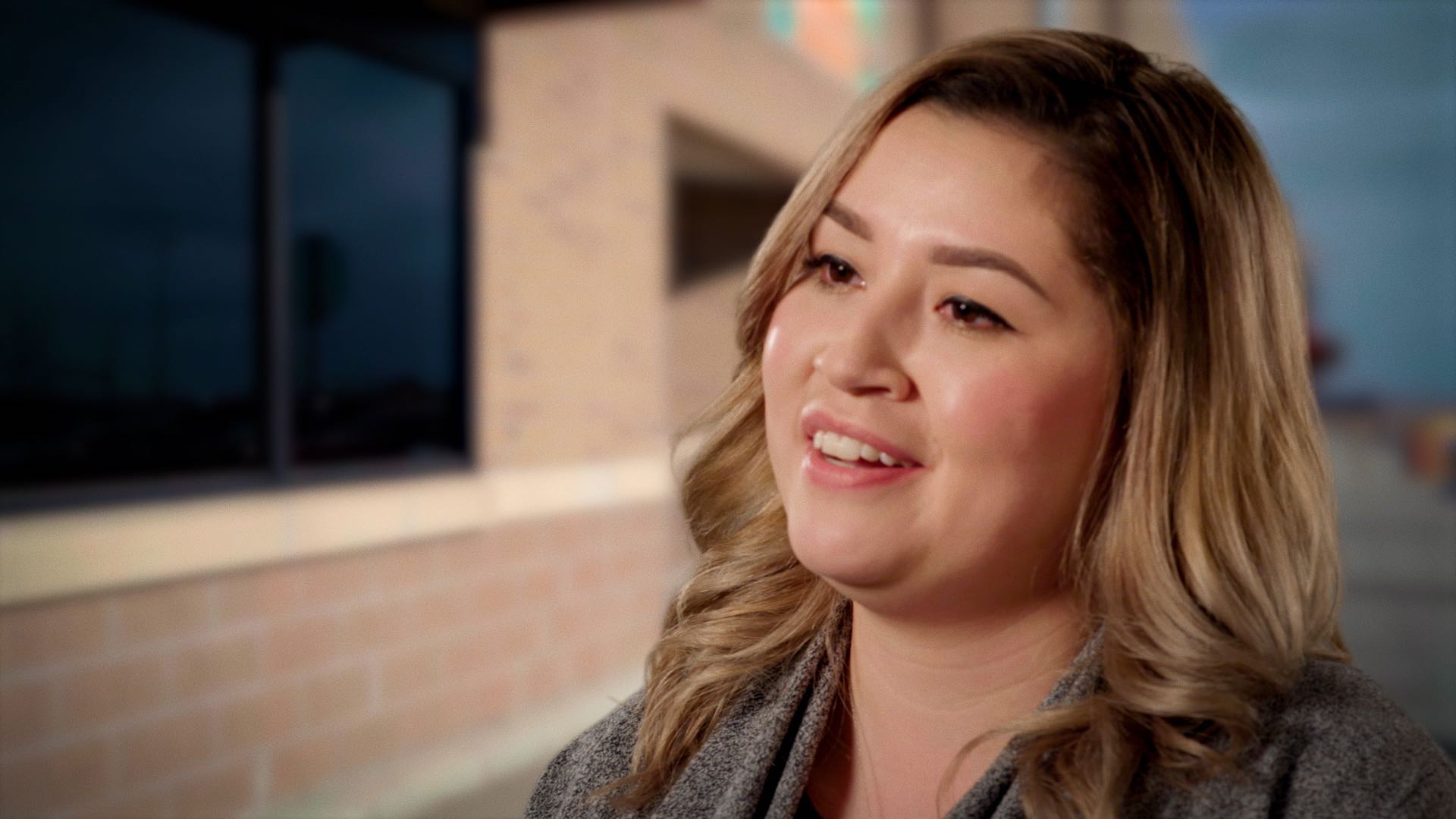 | | | | At Kroger, our priority is to invest in our associates. Our average hourly compensation is over $22 when factoring in generous benefits like affordable health care, 401(k) plans and pensions. Learn more about the opportunities made possible by the Kroger Family of Companies. | | | | | | Bonus: Where in the world? | 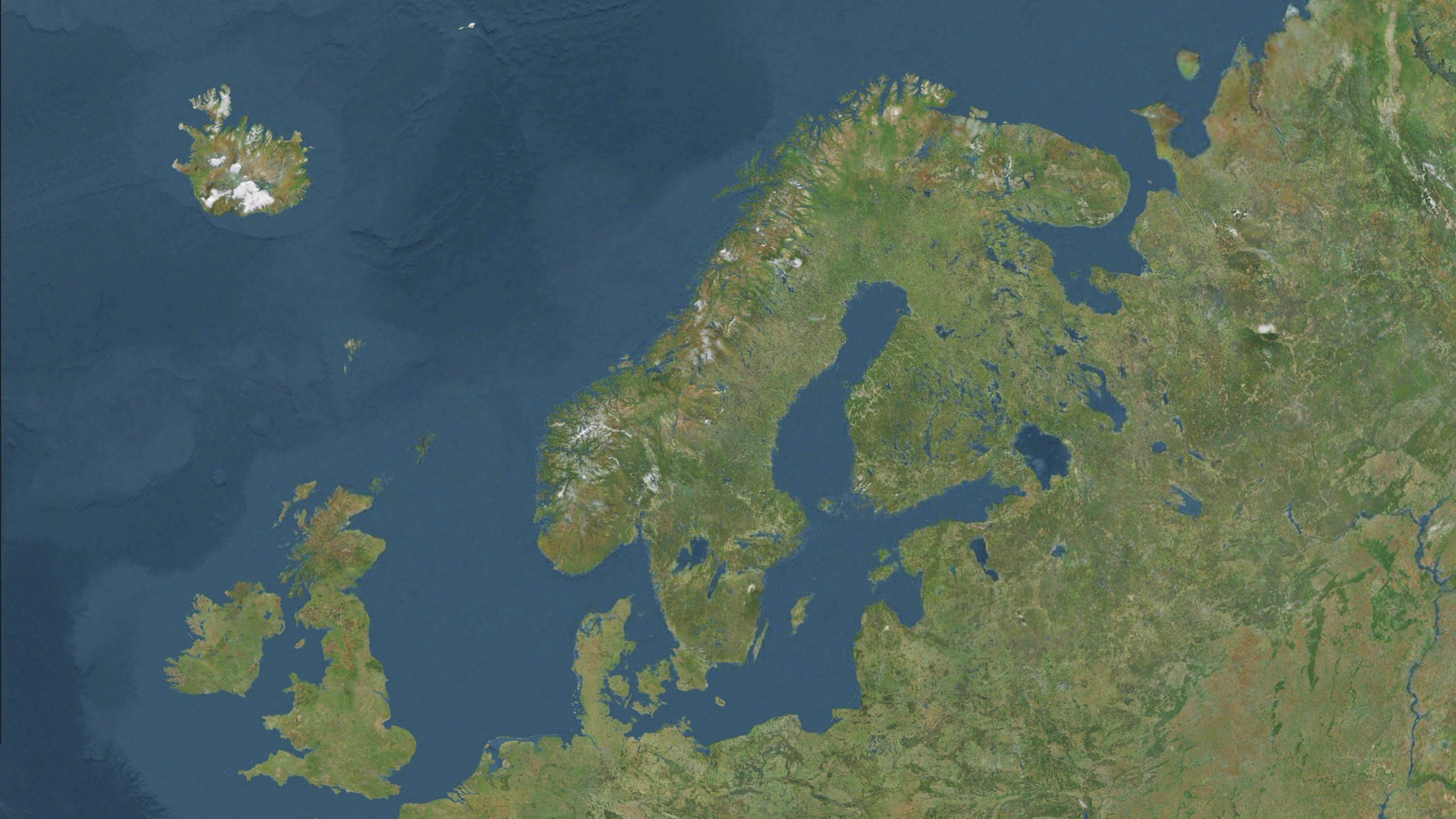 | | | Screenshot via Apple Maps | | | | The Nordic states have been in the news quite a bit lately, but how well do you know them apart? Out of Denmark, Finland, Norway and Sweden, which country or countries... - Border Russia?
- Are not NATO members?
- Does NOT have a monarchy?
- Administers Greenland?
- Has topped the UN's list of the world's happiest countries for five years?
- Is the largest geographically (excluding overseas territories)?
- Gave the world pop group ABBA?
- Consumes the most coffee per capita in the world, according to the UN's Food and Agriculture Organization?
- Once had NATO Secretary-General Jens Stoltenberg as its prime minister?
- Has the most fjords?
|     | | | | | | 4. Global news roundup | 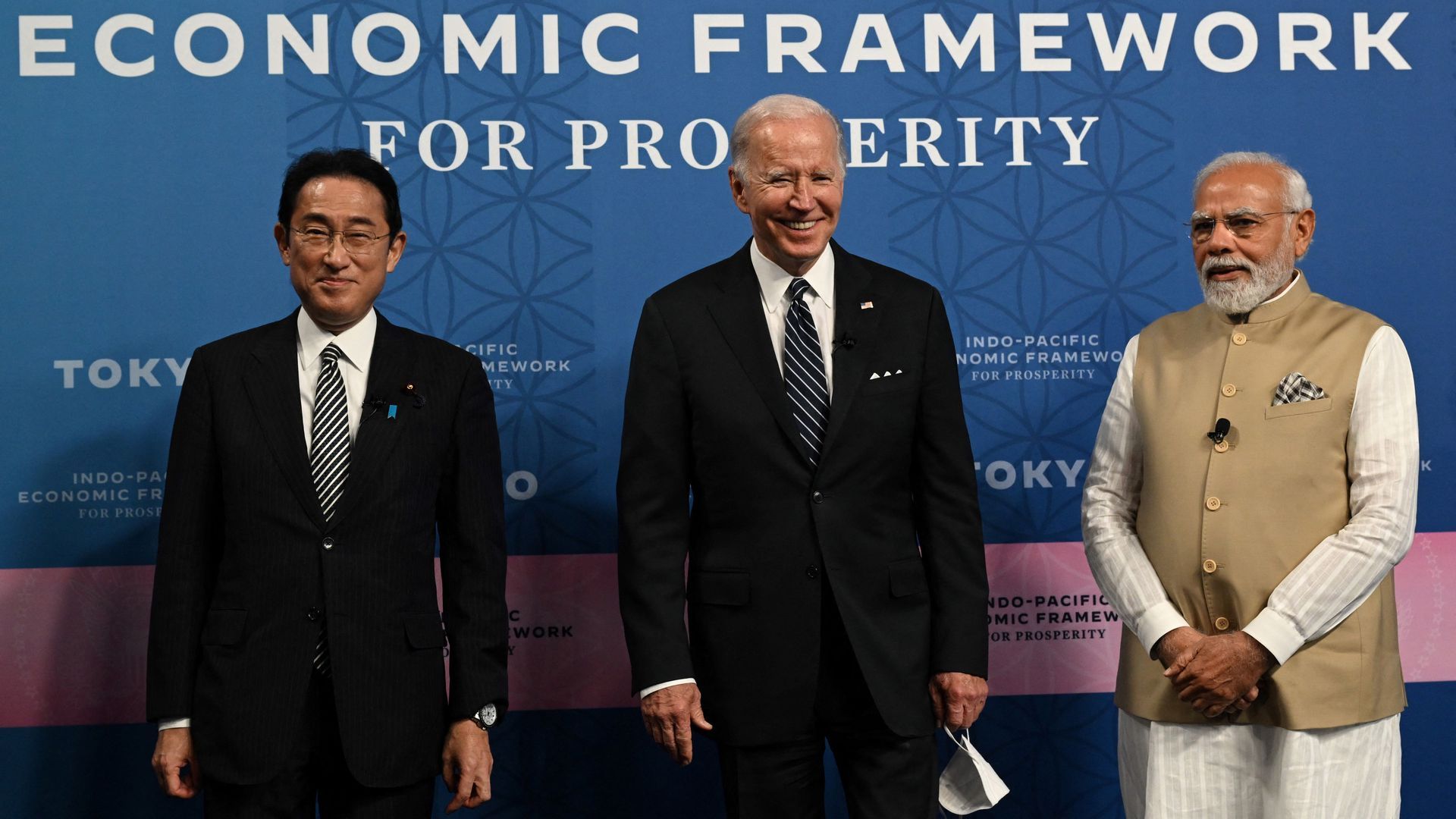 | | | Japanese Prime Minister Fumio Kishida, President Biden and Indian Prime Minister Narendra Modi. Photo: Saul Loeb/AFP via Getty Images | | | | 1. Today in Tokyo, President Biden announced a new trade initiative with 12 Indo-Pacific countries aimed at counterbalancing China's influence while strengthening regional ties. - The Indo-Pacific Economic Framework for Prosperity "will enable the United States and our allies to decide on rules of the road that ensure American workers, small businesses, and ranchers can compete in the Indo-Pacific," per the White House.
- Yes, but: While the details are still pretty murky, this is not a traditional trade deal along the lines of the Trans-Pacific Partnership, a sweeping agreement that grew politically toxic in D.C. Former President Trump pulled out that pact in 2017, and Biden has also steered clear.
- Worth noting: While in Japan, Biden also said that American troops would defend Taiwan if Chinese forces attacked the self-governing island.
2. Australia has a new left-leaning government after nearly a decade of conservative rule. - Labor Party leader Anthony Albanese was sworn in today before he jetted off to Tokyo for a meeting between the "Quad" countries: Australia, India, Japan and the U.S.
3. A Ukrainian court today sentenced a 21-year-old Russian soldier to life in prison for committing war crimes during Moscow's invasion of Ukraine. - The soldier admitted to killing an unarmed civilian, but said he was following orders.
4. Human-caused climate change has ratcheted up the odds and severity of record-shattering heat waves like the one that has gripped India and Pakistan since March, according to a new study. Go deeper. |     | | | | | | 5. Business world: Airbnb to get out of China | 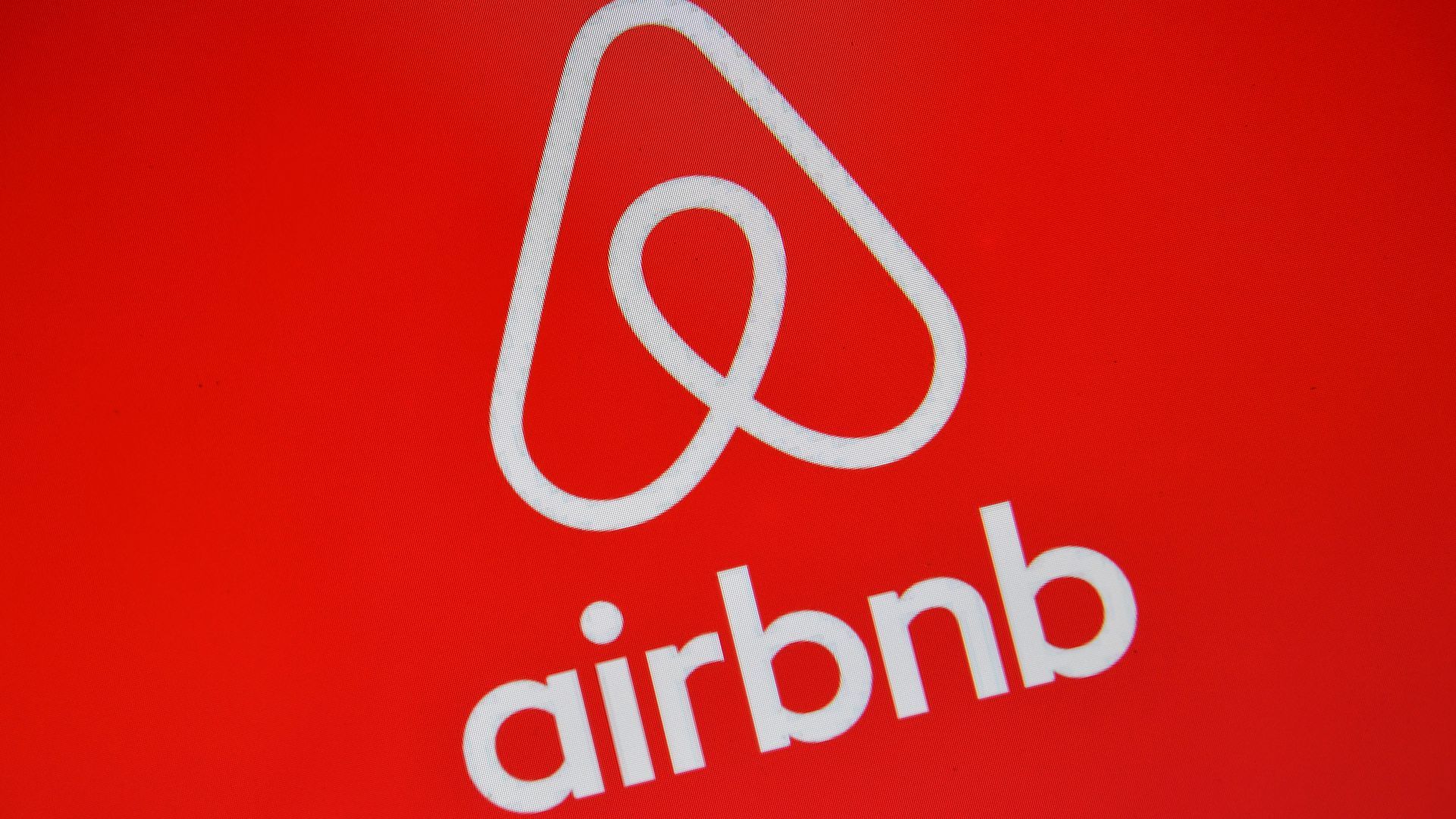 | | | Photo: Carl Court/Getty Images | | | | Airbnb will remove all homes and experiences in China from its platform by mid-summer, Axios' Hope King reports. Why it matters: Airbnb's exit, first reported by CNBC, is another example of a U.S. company finding that the costs and risks of operating in the Chinese market outweigh the benefits. State of play: Since officially launching China-based listings in 2016, Airbnb has failed to gain popularity. - Continuing lockdowns in the country due to COVID have also made it difficult to forecast demand for travel into and around the country for the foreseeable future.
- Over the past year, Airbnb has also faced scrutiny for promoting tourism in Xinjiang, where the U.S. has declared genocide to be taking place.
Go deeper. |     | | | | | | 6. One to watch: World cup 2026 |  Data: ESPN; Map: Simran Parwani/Axios 16 cities will host games when the World Cup comes to North America in four years, with the final list to be announced on June 16. - As of now, 20 cities are still in the running. Sixty games will be held in the U.S., and 10 each in Canada and Mexico, per ESPN.
|     | | | | | | 7. Stories we're watching | 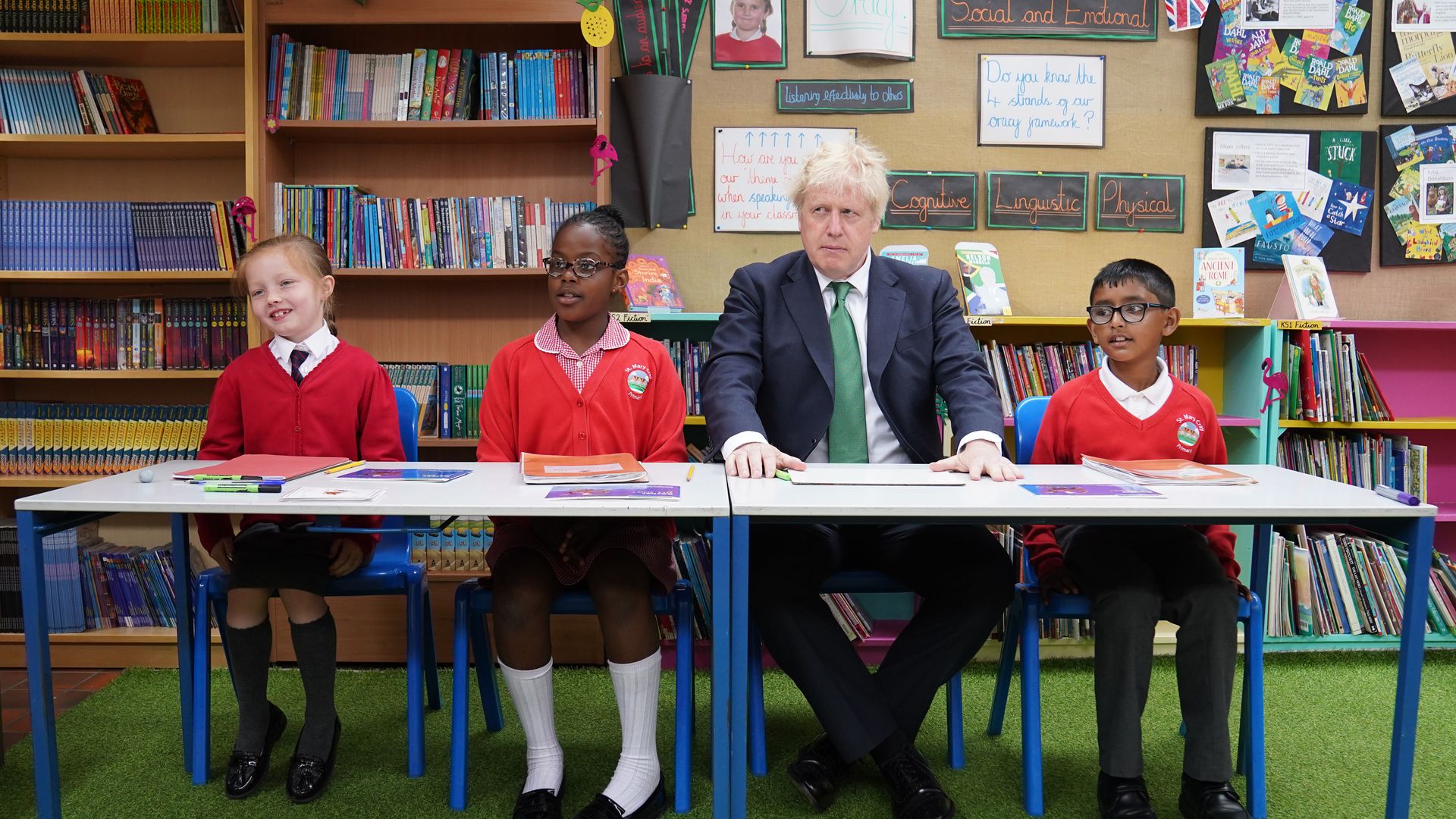 | | | British Prime Minister Boris Johnson visited St. Mary Cray Primary Academy in Orpington, England, today. Photo: Stefan Rousseau/WPA via Getty Images | | | - U.S., South Korea to consider expanded military exercises
- Musk meets Bolsonaro
- Emergency effort to import baby formula
- North Korea outbreak worsens
- Russia to halt gas exports to Finland
- Twist for Israel's fragile coalition
- American investors keep scoring European soccer teams
Quoted: "I simply cannot any longer share in this bloody, witless and absolutely needless ignominy." — Boris Bondarev, a Russian career diplomat who resigned from his post in Geneva over the war |     | | | | | | A message from Kroger | | Life at Kroger: people matter | | |  | | | | At Kroger, we take seriously our role as one of America's largest employers. Since 2018, we've invested more than $4.5 billion in wage increases, training, pensions, and health care benefits for our associates. Learn more about the opportunities made possible by the Kroger Family of Companies. | | | | Answers: 1. Finland and Norway; 2. Finland and Sweden; 3. Finland; 4. Denmark; 5. Finland; 6. Sweden; 7. Sweden; 8. Finland; 9. Norway; 10. Norway. |  | It's called Smart Brevity®. Over 200 orgs use it — in a tool called Axios HQ — to drive productivity with clearer workplace communications. | | | | | | Axios thanks our partners for supporting our newsletters. If you're interested in advertising, learn more here.
Sponsorship has no influence on editorial content. Axios, 3100 Clarendon Blvd, Suite 1300, Arlington VA 22201 | | | You received this email because you signed up for newsletters from Axios.
Change your preferences or unsubscribe here. | | | Was this email forwarded to you?
Sign up now to get Axios in your inbox. | | | | Follow Axios on social media:    | | | | | |
No comments:
Post a Comment